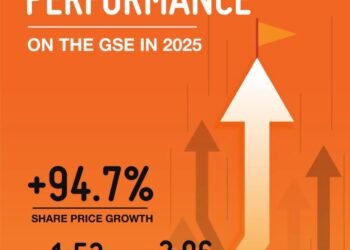The International Monetary Fund (IMF) has warned that the divergent recovery of the global economy may put financial stability at risk.
The recovery of the global economy has been quicker-than-expected, thanks to the unprecedented amount of fiscal stimulus injected worldwide from the onset of the pandemic.
“The stimulus since the start of the pandemic has contained the number of bankruptcies, restrained the increase of unemployment, and reduced economic scarring more generally,” IMFs Financial Counsellor, Adrian Tobias noted.
“Central Bank asset purchases at nearly $10 trillion globally have played a crucial role in keeping interest rates low and financial conditions accommodative.”
Adrian Tobias, Financial Cousellor
Currently, the IMF has forecast an upgrade of global growth to 6% for 2021. This improvement is due to the stimulus package of $1.9 trillion in the United States.
Although the recovery indicates a good fortune for the global economy, it is likely to remain uneven, both among advanced and emerging and developing markets.
Pertaining to this divergent economic rebound, “there is a risk that financial conditions in emerging and frontier market economies may tighten markedly, especially if policy makers in advanced economies take steps toward policy normalization and rates rise rapidly.”
Thus, where financial environments of emerging and frontier markets become less favourable, it may lead to large volumes of capital flight or portfolio outflows.
Such an event may pose a significant challenge to many emerging and frontier market economies, since there is still need for huge capital investments in such jurisdictions.
“Emerging market policymakers could face difficult times ahead, with more constrained monetary policy space on the back of rising inflation, unless positive spillovers from the reemerging global economy take over.”
Unintended Consequences of Policy Support
Another challenge that may underlie the uneven recovery is the possible unintended consequences of unprecedented policy support.
The Fund postulates that a continuum of fiscal stimulus or financial support to countries may lead to stretched valuations of portfolio assets and thus fuel financial risks as well as jeopardize the positive growth trajectory.
“This refers to the risk that an extended period of extremely easy financial conditions, while necessary to cushion the global economy from the impact of the pandemic, may result in overly stretched valuations and fuel financial vulnerabilities that, if left unchecked, could put growth at risk.”
In addition to this, financial vulnerabilities have remained high even before the pandemic in some sectors and are now scaling up the more.
“Bank profitability is expected to be low in many jurisdictions, and it is becoming a disincentive against the use of capital buffers to support the recovery. While markets see a boom in finance, bank lending might become strained and challenge the stance of monetary policy in many countries.
“… The sovereign-bank nexus has intensified markedly in emerging markets, with 60 percent of sovereign debt issued after January 2020 ending up on domestic banks’ balance sheets.”
Against this backdrop, the IMF cautions that while the growth outlook for the year has improved, some downside risks are likely to affect future GDP growth.
The Fund notes that if these risks are not addressed they could bulge into a whole new structural legacy problems weighing on growth.
READ ALSO: China’s vast bitcoin mining empire risks derailing climate targets























